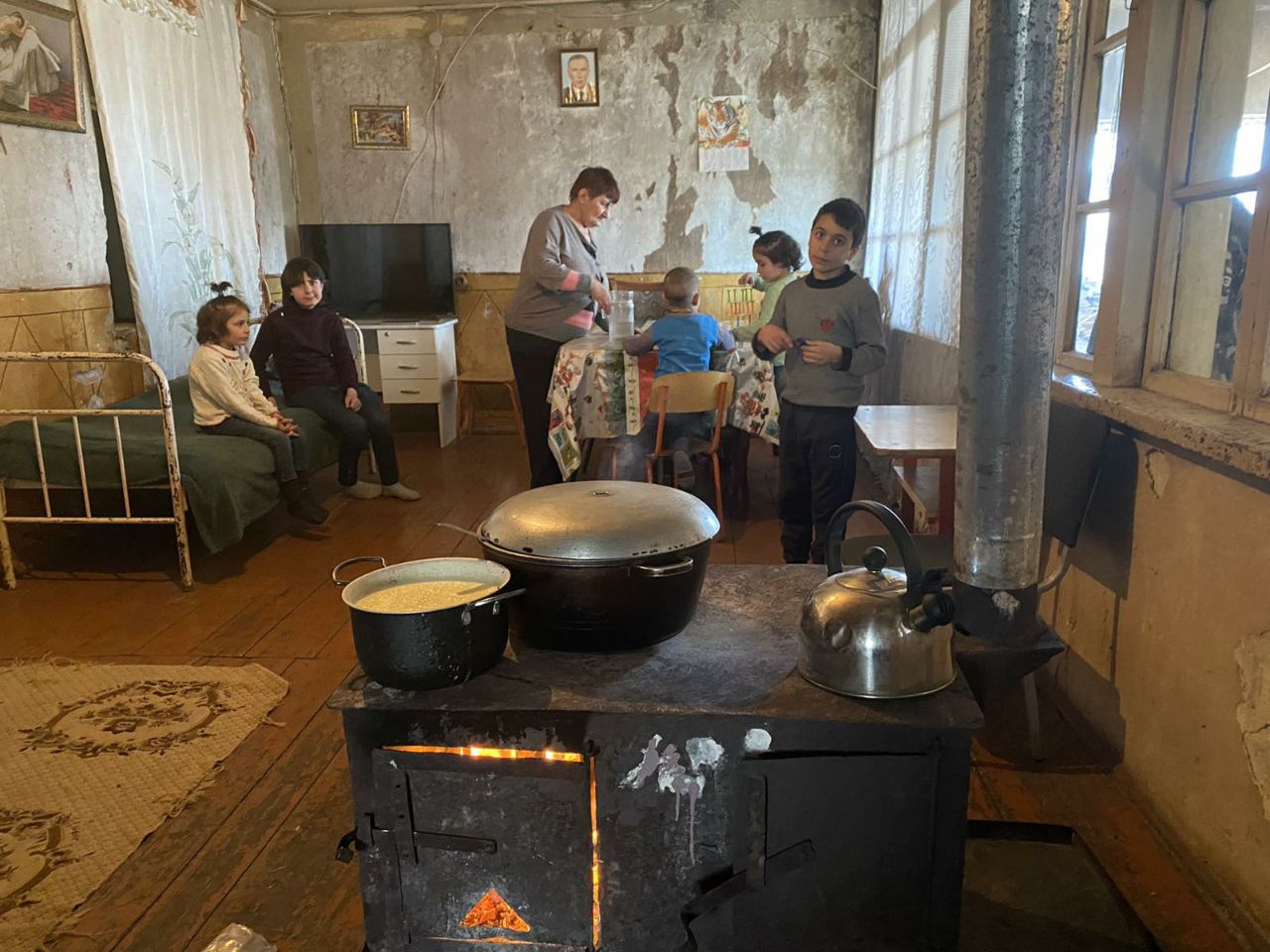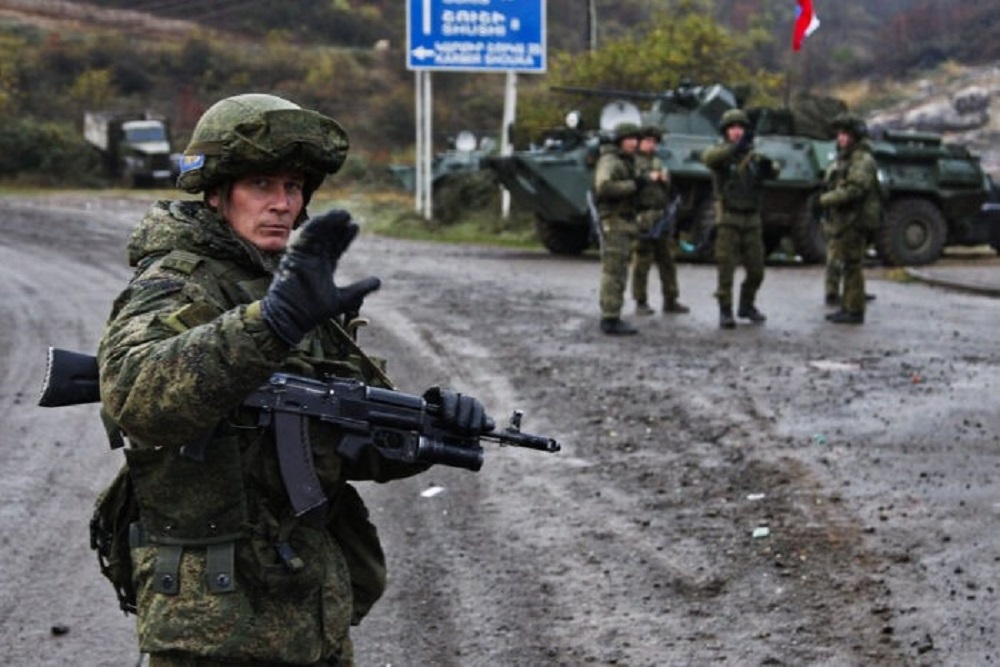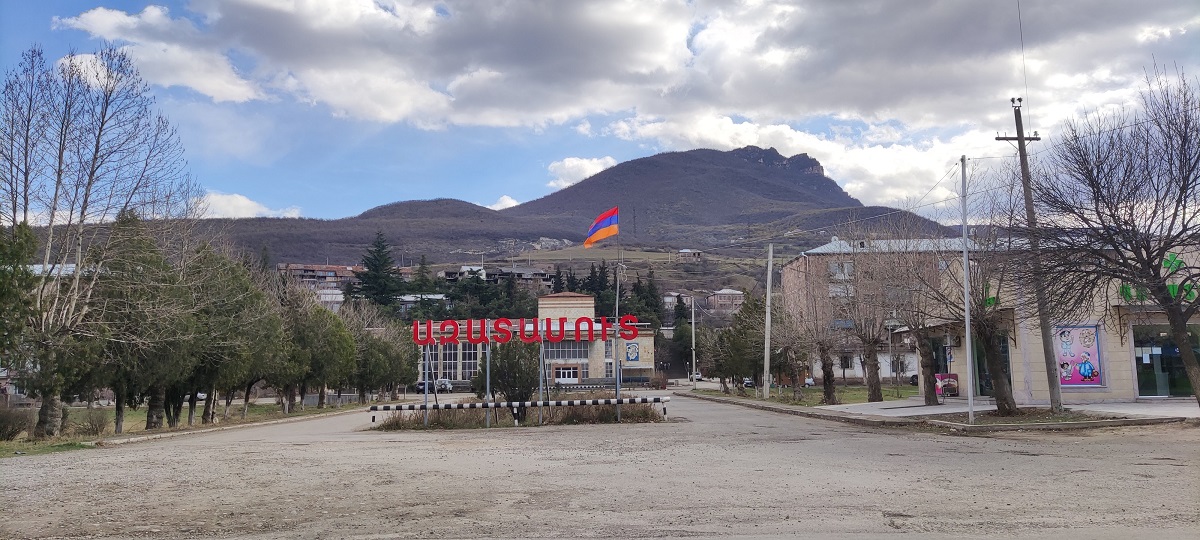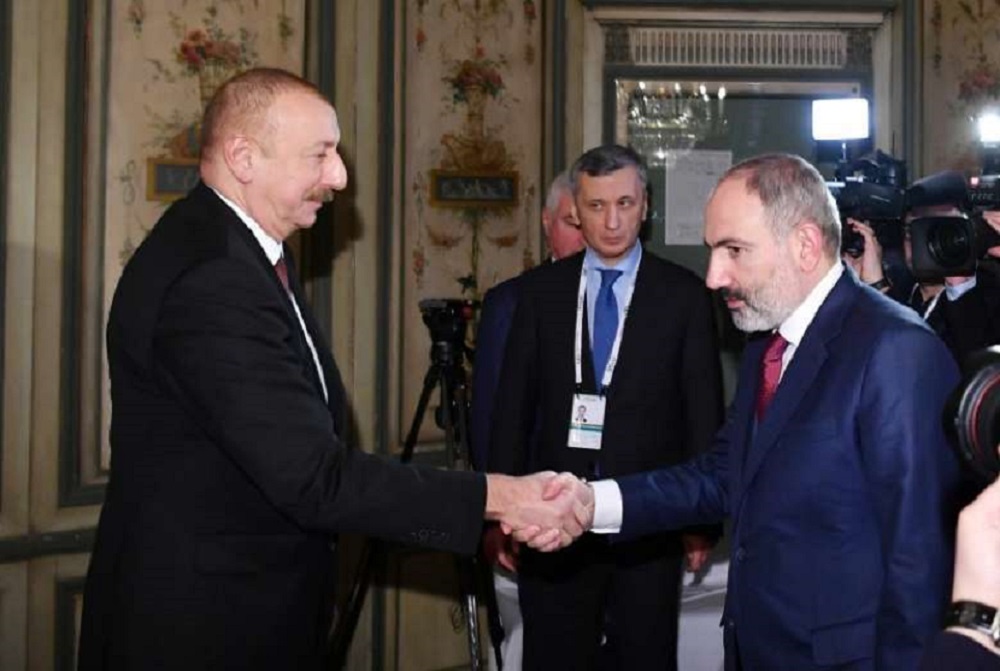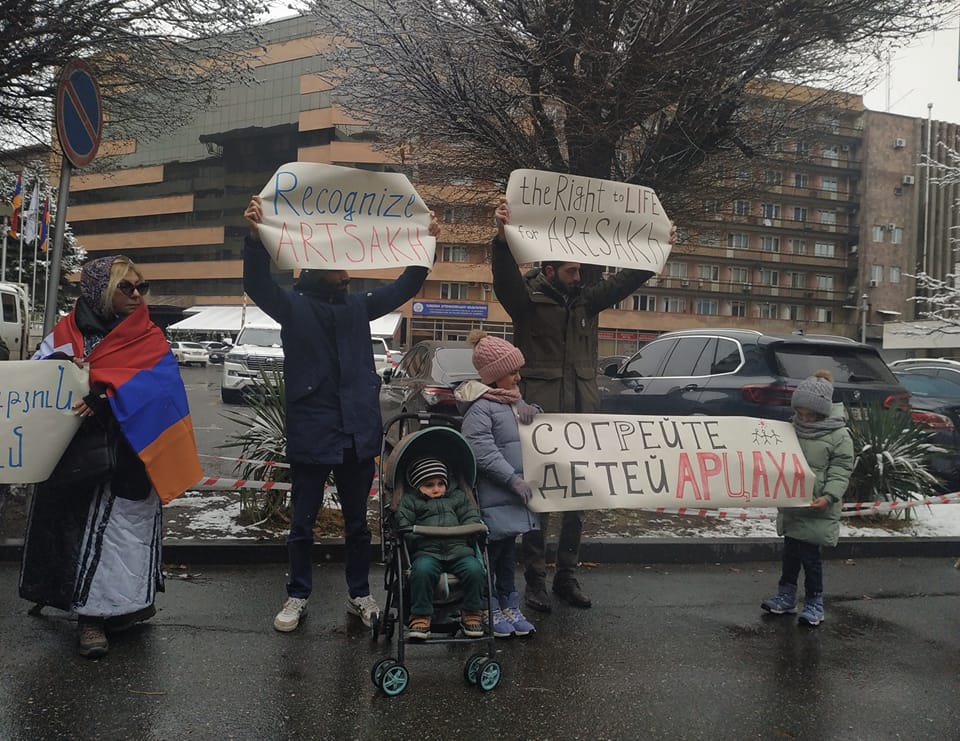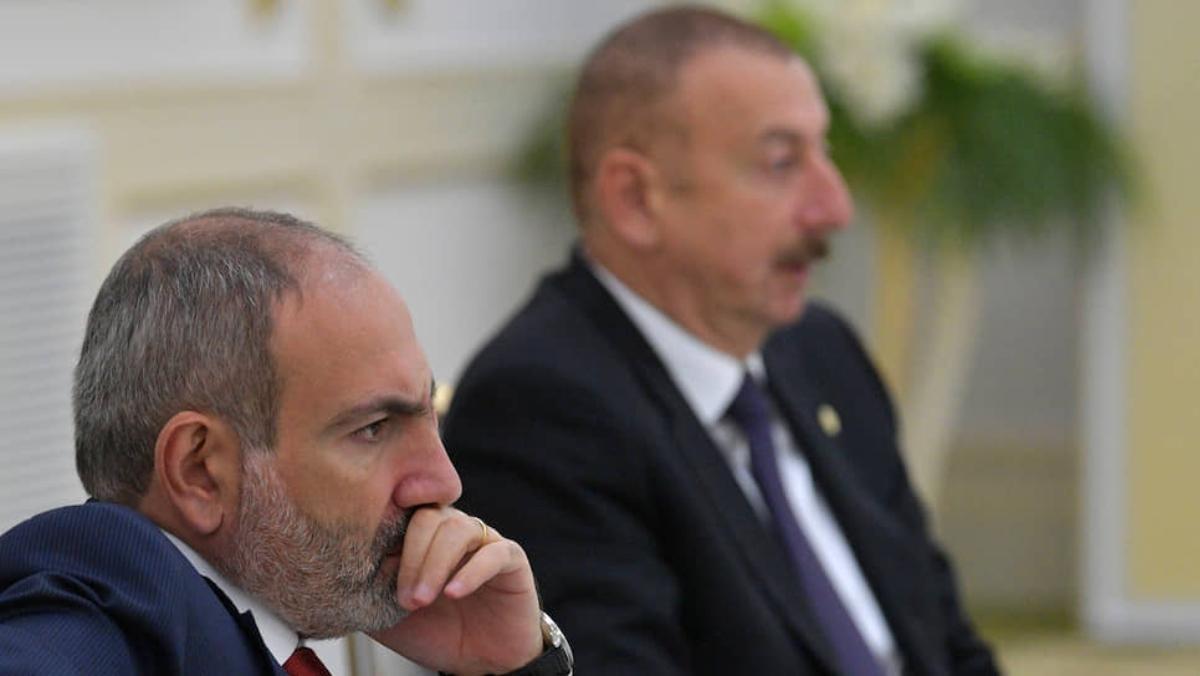Op-ed: How to save Armenians in Nagorno-Karabakh?
How can Armenians in Nagorno-Karabakh be saved?
The situation in Nagorno-Karabakh has escalated significantly since March 24. Azerbaijani troops moved forward in the zone of responsibility of Russian peacekeepers, occupying the village of Parukh and the strategic height of Karaglukh. Women and children were evacuated for safety reasons from the nearby villages. As a result of hostilities, three Armenian servicemen were killed, 14 were injured, two of them are in critical condition. The society complains about the inaction of the peacekeepers, who, for their part, declare that they are negotiating with the Azerbaijani side on the withdrawal of troops.
However, for the fourth day in a row, Azerbaijani Armed Forces refused to retreat to their original positions, and instead strengthen the occupied ones. Amid the new escalation, both in Nagorno-Karabakh and in Armenia, protests were held with a call to the world community to pay attention to the ongoing events and recognize the NKR. After that, the authorities of the unrecognized republic, under the already existing martial law, imposed restrictions on freedom of assembly and banned strikes.
- ‘Triarchy’ in Karabakh? Conflicting reports from Armenian, Russian, Azerbaijani state agencies
- “We must investigate actions of Russian peacekeepers”: PM Pashinyan’s appeal to Putin
- Armenia claims Azerbaijani forces captured strategic point in Karabakh
Gegham Baghdasaryan, head of the Stepanakert Press Club. “The political crisis in NK has reached a dead end”
People must make demands on their authorities
“It is surprising that the people of Artsakh have made demands on the whole world, but not on their own government – Armenian authorities, peacekeepers, the international community, international structures, but not to the Artsakh authorities. Meanwhile, those authorities, in fact, have all the necessary resources and bear full responsibility for finding a way out of the situation, dialogue with the world and pan-Armenian mobilization.
Until our authorities meet our hopes and desires, all other efforts will be in vain. We must be able to talk, first of all, with our authorities, talk to them and be demanding. Until we get to that point, nothing will change.
Why do we think that we have more opportunities to influence the world than our own authorities? This is an ideological and logical error”.
Political crisis is obvious – how to get out of it?
“I think until the official Stepanakert gives a fundamental political assessment of the current situation, it will be impossible to stop this disastrous process. The assessment of Stepanakert should be principled and worthy, calling things by their real names.
It is necessary to finally abandon the presentation of Azerbaijani aggression as “an attempt to discredit the peacekeeping mission”.
It’s not even funny, and such statements hurt our reputation.
Without a political assessment, it is impossible to achieve “the toughest assessment of the international community against Azerbaijan for the Armenophobic policy”, as stated by the Artsakh Foreign Ministry.
The international community itself expects from us the toughest assessment of the current situation in our country, which should serve as the basis for their position.
From this point of view, the self-organization of the Artsakh public and protests are, of course, important, but I believe that they should be given a new content.
In Artsakh, it is necessary to form a new political agenda, a new political thought, moreover, under public pressure. The authority should be in the hands of public initiatives, which are concerned about the future of the country. But the Artsakh authorities follow a different path, trying to prevent these initiatives and the existing political institutions are not capable of forming a new political agenda.
This is a dead end.
In order to get out of it, it is very important to start political processes, to form a new political agenda and political idea. Artsakh should become an independent political factor, and this is its salvation”.
Hakob Badalyan, political observer. "Develop political concepts and work with society"
Authorities made society incapacitated
“The system of government of Armenia, whose appendage throughout the years after the first Artsakh war was the system of government of Artsakh, did everything possible to suppress the freedom of political thought, as well as any mechanism for its formation.
The system associated this policy with security issues, but in fact, I think, only to protect itself from unnecessary headaches and gain maximum control over public behavior, which could not but have consequences.
In fact, in these limited conditions, a whole generation was formed with limited ideas and devoid of political creativity, etc.
That is, now we are dealing with the consequences of the policy of this system of government.
They are very difficult to overcome, especially in conditions when even more severe psychological and political consequences of the 2020 war were added to all this. Objective reasons were supplemented by subjective ones.
It is very important how the Artsakh public is able to independently single out groups that will open up political thought and take politics to a new level, step by step changing the political logic of Artsakh. To what extent can these groups make it clear to the public that seclusion in the political sense does not really provide security, on the contrary, leads to public incompetence in relation to political challenges.
If the social organism becomes incapable in relation to political challenges, it ceases to be able to respond to them, the risks and threats to security naturally increase”.
New political thought should be shaped by all generations
“For the formation of a new political thought, all generations, not only the new one, must apply their strength. For this, the resources are available, that those of others, in particular, and those who stood at the origins of the Karabakh movement. Some of them were in power, but, for one reason or another, resigned themselves to the prevailing trends.
This generation had personalities that could be useful to the new generation.
But without changes in the environment of the new generation, which should take the basic experience from the older ones, nothing can work out. It is very important to identify groups that are ready to adopt their experience from the older generation, update them, supplement them with new thinking and try, step by step, to put politics in Artsakh back on its feet, because this is an important component of security, although we have been convinced of the opposite for years”.
Restriction of freedom of speech
“Different political groups in Yerevan, as well as Moscow, possibly affiliated with each other, are trying to resolve some political issues in Armenia, using the political field and the situation in Artsakh. The imposed restrictions on freedom of speech and holding meetings are rather aimed at curbing undesirable processes.
I do not think that the restrictions were introduced in order to counteract the formation of a new political thought in Artsakh. You cannot form it quickly enough to turn it into a real threat to the authorities. Today there are no such processes. Public groups must first of all understand what they want, what ideas they have. This issue cannot be resolved by street actions”.
Political frivolity
“For the formation of a political process, great efforts are needed, as they say, first you need to do a lot of homework for this political thought. We need to develop different political concepts, then start working with society.
People must accept and understand the proposal of the intellectual advanced groups. Society today does not follow empty words, it needs effective ideas, only people can take them seriously. Even the authorities are starting to take them seriously.
However, on the one hand, Artsakh does not have time, on the other hand, if this painstaking work at the basic level is not done now and they just try to jump to another level, nothing good will come of it.
By the way, the picture is the same in Armenia – there is no political thought in Armenia.
Instead, there is something frivolous that does not give any results, on the contrary, it has become more a tool for manipulation than a base for political thought”.










